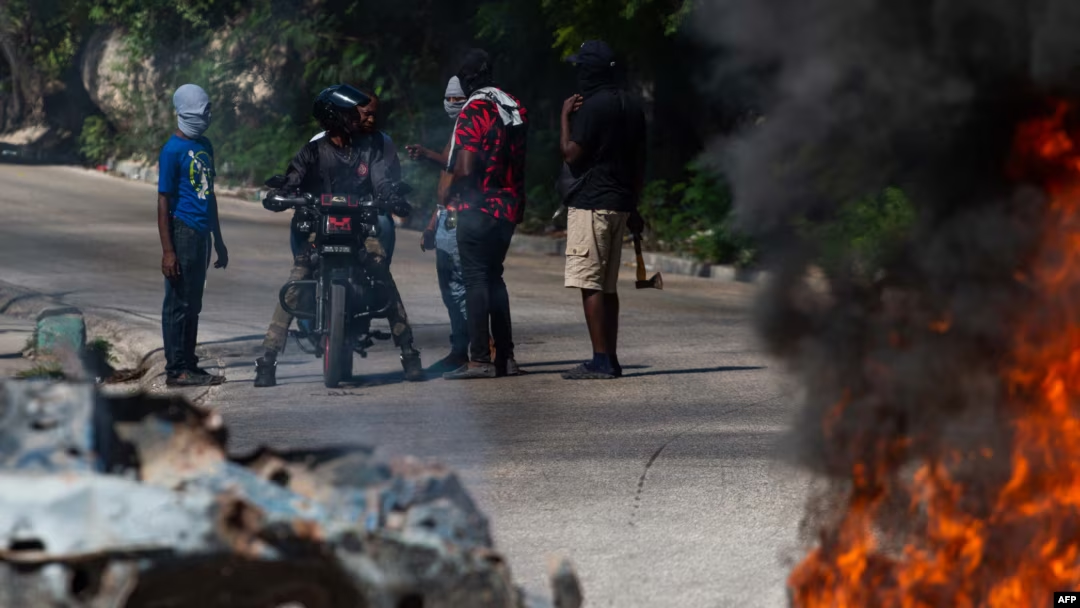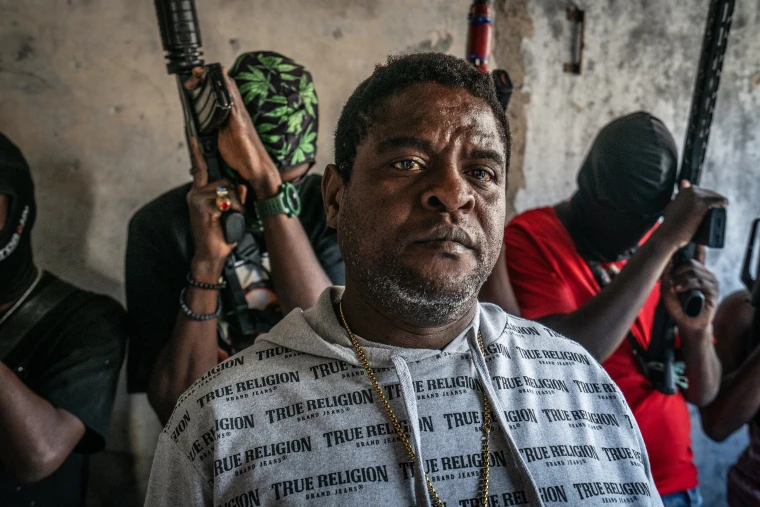In a move underscoring the complexity of U.S. immigration policies and Haiti’s deteriorating security situation, 70 Haitian migrants were deported by the United States amidst escalating gang violence in their home country. The action, which has drawn sharp criticism from human rights organizations, highlights the tension between border enforcement and humanitarian concerns. This article explores the key details of the deportation, its implications, and the broader context of Haiti’s crisis.
Haitian Migrants and the U.S. Deportation Policy
The group of 70 migrants was among many Haitians who have risked their lives to flee dire conditions in their homeland. For years, the U.S. has faced a steady influx of migrants from Haiti, with people fleeing poverty, political instability, and, most recently, rampant gang violence.
These deportations are part of a broader U.S. policy to manage border security and curb illegal immigration. Critics argue that deporting individuals back to a nation in turmoil violates international principles of non-refoulement, which prohibit returning people to places where their lives are at risk.
U.S. officials have defended the deportations, citing the necessity of maintaining order at the border and adhering to immigration laws. However, the deportation of Haitians has raised unique concerns, as the country is grappling with a crisis so severe that the United Nations has described it as “one of the worst humanitarian crises in the Western Hemisphere.”
The Crisis in Haiti: A Country on the Brink
Haiti is facing an unprecedented surge in gang violence that has paralyzed daily life and plunged the country into chaos. Gangs control significant portions of the capital, Port-au-Prince, and other urban areas, engaging in kidnappings, extortion, and violent clashes.
The roots of Haiti’s gang problem are intertwined with decades of political instability, weak governance, and socio-economic inequality. The assassination of President Jovenel Moïse in July 2021 created a power vacuum, exacerbating the chaos. Armed groups quickly filled the void, further destabilizing an already fragile state.
This dire situation has prompted thousands of Haitians to seek refuge abroad. However, for those deported, returning to Haiti often means facing the very violence and instability they tried to escape. Many deportees have no access to safe housing, jobs, or basic services upon arrival.
International Response to Haiti’s Crisis
The deportation of Haitian migrants has put the spotlight on the international community’s response—or lack thereof—to Haiti’s plight. Human rights advocates have called for the U.S. and other nations to adopt more compassionate immigration policies for Haitian nationals, arguing that deportation exacerbates an already dire humanitarian situation.
In recent months, the United Nations and other international organizations have urged the global community to address the root causes of Haiti’s crisis. They have called for increased aid, diplomatic efforts to stabilize the country, and protection for those fleeing violence.
While some progress has been made, including commitments from certain countries to provide financial assistance and deploy security forces, these efforts have been criticized as insufficient given the scale of the crisis.
Deportations Amid Humanitarian Crisis: The Ethical Debate
The deportation of migrants from crisis-stricken nations like Haiti raises difficult ethical questions. On one hand, governments have a responsibility to enforce their immigration laws and manage national borders. On the other hand, sending people back to countries where they face severe risks undermines fundamental principles of human rights.
The Biden administration has faced intense scrutiny over its handling of Haitian migrants. While the administration has pledged to adopt a more humane immigration policy compared to its predecessor, the deportations suggest a continuation of stringent border enforcement measures.
Human rights groups argue that deporting Haitians contradicts the administration’s commitments to compassion and equity. They have called for Temporary Protected Status (TPS) to be extended and expanded for Haitians, allowing them to remain in the U.S. while their country recovers.
The Human Cost of Deportations
For the 70 Haitians deported last week, the return to Haiti is not just a legal procedure—it is a life-altering event. Many migrants face immense personal risks upon their arrival, including threats from gangs, lack of access to medical care, and extreme poverty.
Stories from deportees reveal harrowing experiences of being forcibly returned to a country they no longer recognize. Some have no family or support systems left, while others have faced persecution or violence almost immediately after landing.
The psychological toll of deportation is also significant. Many migrants suffer from trauma, having left everything behind in search of safety, only to be sent back to a situation they perceive as hopeless.
The Role of VOA Spanish in Reporting the Story
Voice of America (VOA) Spanish has played a critical role in bringing attention to the plight of Haitian migrants. By reporting on these deportations and the broader humanitarian crisis in Haiti, VOA Spanish ensures that the issue remains in the public eye.
The media’s role in highlighting such stories is crucial, as it can influence public opinion and policy decisions. For Haitian migrants, increased visibility may lead to greater advocacy efforts and, potentially, more compassionate policies.
Path Forward: Balancing Security and Humanity
The deportation of Haitian migrants is a stark reminder of the challenges governments face in balancing border security with humanitarian obligations. Moving forward, a multifaceted approach is needed to address both the immediate needs of migrants and the root causes of their displacement.
- Revisiting Immigration Policies
Policymakers must consider alternatives to deportation, such as expanding asylum programs, offering TPS, and providing humanitarian parole. These measures can protect vulnerable individuals while maintaining the integrity of immigration systems. - Addressing Haiti’s Crisis
Long-term solutions require international collaboration to stabilize Haiti. This includes tackling gang violence, improving governance, and providing economic support to create opportunities for Haitians at home. - Promoting Regional Solutions
Migration is a regional issue that requires regional solutions. Neighboring countries and international organizations must work together to provide safe havens for migrants and share the responsibility of addressing Haiti’s crisis. - Enhancing Public Awareness
Media outlets and advocacy groups must continue to shine a light on the plight of Haitian migrants and the conditions in Haiti. Greater awareness can lead to stronger public support for compassionate policies.
Conclusion
The deportation of 70 Haitian migrants amid escalating gang violence in Haiti underscores the urgent need for a more compassionate and comprehensive approach to migration. As Haiti grapples with one of the worst crises in its history, the international community must prioritize both immediate humanitarian relief and long-term solutions to restore stability.
The plight of Haitian migrants is not just a policy issue—it is a human issue. Their stories remind us of the importance of compassion, the value of human rights, and the shared responsibility to protect the vulnerable. By addressing these challenges with empathy and determination, the U.S. and other nations can help create a brighter future for those who have endured so much.




